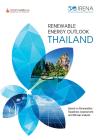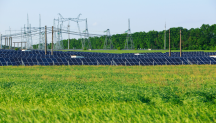

-
-
IRENA (2017), Renewable Energy Outlook: Thailand, International Renewable Energy Agency, Abu Dhabi.
Copied
/-/media/Files/IRENA/Agency/Publication/2017/Nov/IRENA_Outlook_Thailand_2017.pdf
Copied
Renewable Energy Outlook: Thailand
Newsletter
Thailand faces rising energy demand coupled with increasing reliance on non-indigenous sources of energy. At current usage levels, the country’s existing oil and gas resources will deplete within the next decade.
In response, Thailand has set out to increase and diversify its use of renewables. This has involved establishing a new target whereby 30% of the country’s total energy consumption would come from renewable sources by the year 2036 – almost double the level in 2015.
Still, with a more aggressive development plan, Thailand’s renewable energy sources could reach more than 37% over the same time frame, according to a REmap analysis conducted by the International Renewable Energy Agency (IRENA) in co-operation with energy officials and experts in the country.
This Renewable Energy Outlook evaluates Thailand’s options for power generation, thermal and bioenergy use, and transport development. The report identifies the key challenges in scaling up renewables and highlights the country’s various renewable energy technology options.
Combining IRENA’s REmap and Renewables Readiness Assessment methodologies, the report offers five main recommendations:>
- Intensifying the role of solar photovoltaic (PV) and wind power;
- Scaling up the use of solar thermal technologies in water heating and end-use sectors;
- Developing mechanisms to ensure effective thermal use based on renewable energy sources;
- Ensuring reliable, high-quality, affordable supply of biomass fuels while diversifying incomes for local farms;
- Devising a long-term transportation development plan focusing on electric or renewable-based vehicles and fuel types.
To minimise overall costs, the country has to develop a portfolio of complementary renewable energy sources, combined with intelligent control systems to manage variable sources, such as solar and wind energy.
By incorporating these options, Thailand can rapidly improve its renewable energy outlook, reduce costs and achieve greater energy security.




